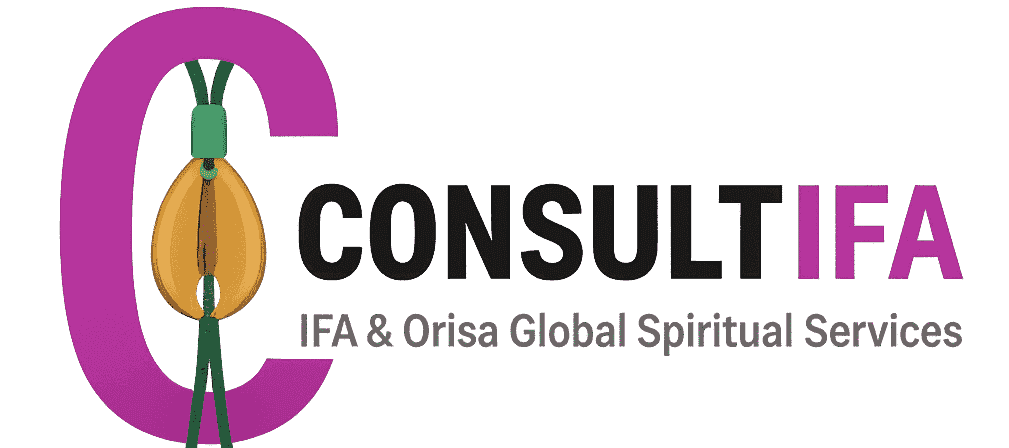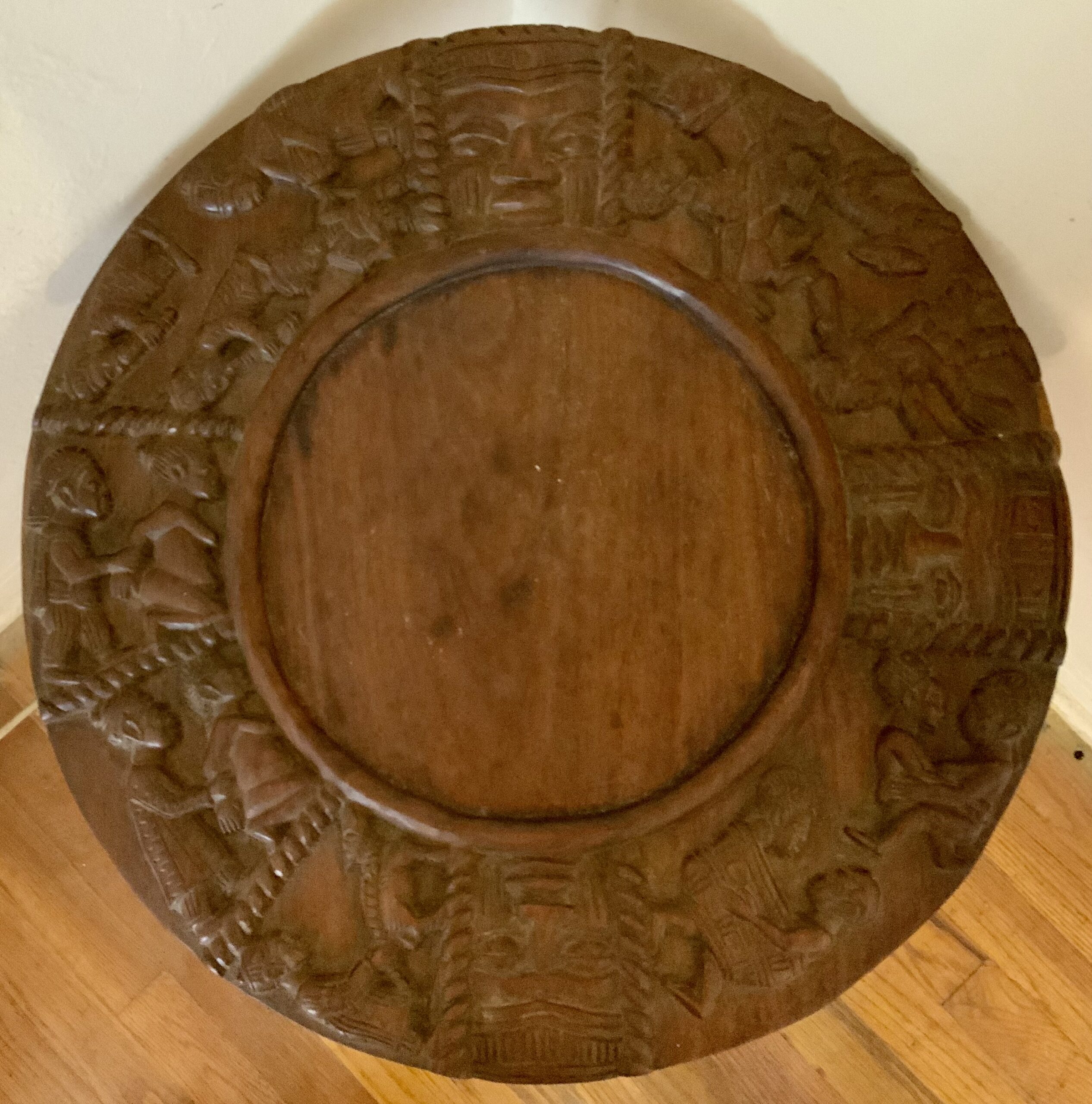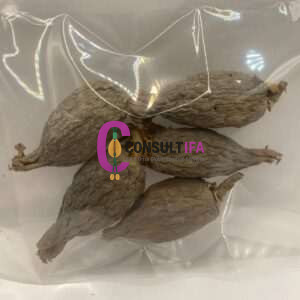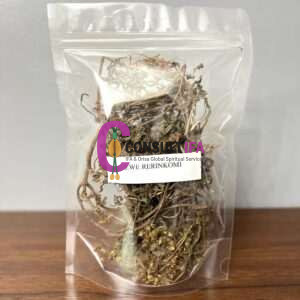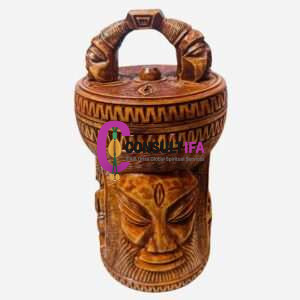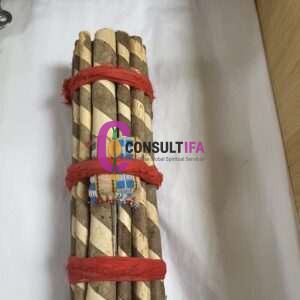Photography: Will Coleman, Ph.D.
Opon ifa (divination tray) with cowrie shells. In the ancient kingdom of Yoruba land cowries shells were a form of currency. and abundance. Also, they are used in some divinatory processes, especially in the African diaspora.
OLODUMARE IS A GRACIOUS CREATOR
The one who brings everything into existence is beyond categorization. Boundlessness generates the bountiful universe (or pluriverse). Olodumare bears some similarities with “ha-Shem” of Judaism, “God” of Christianity and “Allah” of Islam. At the same time, Olodumare is particular to Ifa and its diasporic offspring in the Americas.
Olodumare has no beginning or ending. Olodumare is ubiquitous and the source of all that has been, is and will become. There are no shrines or visible representations of Olodumare. Olodumare is simultaneously the “owner” of creation and beyond adequate human conceptualization and modes of expression.
There are others agents and spiritual powers through which Olodumare interacts with creation (Esu, Orunmila, other Orisaha, etc). They will be covered under chapters 7 (Esu) and 8 (Orunmila).
***
PRAYER
Photography: Will Coleman, Ph.D.
Opon ifa (divination tray). Olodumare is unseen, but sees all. Olodumare is the source of all that exists.
OLODUMARE
Olodumare, mo ji loni. Mo wo’gun merin aye.
Creator, I greet the new day. I greet the four directions that create the world.
Igun ‘kini, igun ‘keji, igun ‘keta, igun ‘kerin Olojo oni.
The first corner, the second corner, the third corner, the fourth corner are owners of the day.
Gbogo ire gbaa tioba wa nile aye. Wa fun mi ni temi. T’aya -t ‘omo t’egbe – t – ogba,
They brought us the good fortune that sustains us on earth. They bring me all things that sustain my spirit,
wa fi yiye wa. Ki of f’ona han wa. Wa fi eni -eleni se temi,
With you there is no failure, we praise the road you created, nothing can block the power of the Spirit.
Alaye o alaye o. Afuyegegege meseegbe. Alujonu eniyan ti nf’owo ka le.
We praise the Light of the Earth; it sustains the abundance of Creation.
A ni kosi igi meji ninu igbo bu obi. Eyiti o ba ya’ko a ya abidun – dun – dun – dun. Alaye o, alaye o.
It brings us the food of the forest. It brings us the sweet things in life. We praise the Light of the Earth; we praise the Light of the Earth.
Ase.
May it be so.
***
HERMENEUTICS/INTERPRETATION – COSMOLOGIES
Several cosmology diagrams are included under the following section of this chapter. The first one represents the Hebrew cosmology. Next comes the Yoruba and then the others are comparative representations from other parts of West and Northeastern Africa.
1.Hebrew. This cosmology is constructed from reading genesis, chapter 1, verse one through chapter 2, verse 4a. The image is that of a sphere. Above the upper portion of it is the domain of the Creative powers. Underneath it is a dome through which rain, snow, etc is emitted via “windows.” The sun, moon and stars traverse this dome in rhythmic cycles. They move through the atmosphere. The earth is conceived as an island surrounded by water and supported by a giant pillar that plummets into the deep sea underneath it. The more immediate soil under the ground is Sheol. It is the place where human bodies are buried. Much later on in Jewish thought it becomes a place of imprisoned spirits. It is important to note that all earthly life is contained within this gigantic sphere. Beyond this, there is the unknown realm of the heaven of heavens.
2. Yoruba. Ifa cosmology is amazingly similar to the ancient Hebrew one. Its mythologies of origin speak of a vast “ocean.” When Olodumare sends one or more of the Orishas to manifest a habitable land mass, they are given elements that are cast upon the ocean that will create Ile Ife. Creation is both sequential and concurrent in another dimension and on earth. In a sense Orun (heaven) is no place and everywhere. The image of the calabash is aptly suited to represent the idea of all things and beings contained within it. There is no dualism or dichotomy. There is cause and effect, along with the wisdom needed to live according to established principles of how the cosmology functions.
3. Vodun. Here again there are striking similarities between the ancient Hebrew and Vodun cosmologies. Originally brought forth by Nana Buluku, the androgynous couple Mawu Lisa complete the process of creation through their offspring. Lisa is symbolized as the sun; Mawu as the moon. The other “vodun” are described as forces of nature. Similar to Ifa, the spirit world is adjacent to the physical one. So too, everything is interconnected. Also, there are other realms of reality below the surface of the visible earth.
4. Igbo. The supreme being, like the deity of hebrew cosmology is supremely above and beyond creation. The cycles of life rotate from brith, puberty, adulthood, maturity, death/transformation. At the same time “death” is not permanent, as one could become an ancestor and/or reincarnate. The human hemisphere of life “above” the horizon is adjacent to the spirit world “below.” Thus, they are interconnected.
5. Kongo. The Kongo cosmogram is similar to the others. It represents the cycles both microcosmically and macrocosmically. Moving counter-clockwise birth corresponds to east, sunrise, spring; adulthood corresponds to north, noon, summer; death to west, sunset, fall; and beyond death to south, midnight, winter. The world below the horizon is equal to and/or greater than the one above. In other words, the realm of the ancestors below the surface is a place of both veneration and rejuvenation.
***
ANCIENT COSMOLOGIES
HEBREW COSMOLOGY
Attribution – Tom L – Image adapted by Oscar Daniel II – CC 4.0 BY
___________________________________________
YORUBA COSMOLOGY
Used with permission from image creator Dr. Henry J. Drewal – Adapted by Oscar Daniel II
_____________________________________
VODUN COSMOLOGY
Image created by Oscar Daniel II
___________________________________
IGBO COSMOLOGY
Image created by Oscar Daniel II
_____________________________
